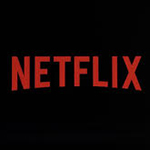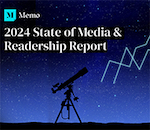 |
Facebook is planning to make a $300 million investment in local news coverage. The investment is expected to include more than $20 million to expand Facebook’s Accelerator program, which is intended to assist local publishers with their membership and subscription models. It also will fund such initiatives as the U.K.-based Community News Project, a program that will recruit trainee “community journalists” and place them in local newsrooms, the Pulitzer Center and the Local Media Association and Local Media Consortium. Facebook’s new efforts will not be tied to Facebook-related products, recipients of the investments told Reuters. Facebook vice president of global news partnerships Campbell Brown said the investments are part of the company’s “responsibility to help local news organizations grow and thrive.” The move follows recent criticism of Facebook, claiming that it offers a platform for hate speech, misinformation and meddling in politics.
 Adam Moss |
Adam Moss is leaving the editor-in-chief spot at New York magazine, a position he has held since 2004. Both Moss and New York Media chief executive Pamela Wasserstein said that it was Moss’s decision to step down. Moss, who was editor of the New York Times Magazine and the late 1980s weekly 7 Days, was one of several people considered to take over at Vanity Fair when Graydon Carter stepped down as editor in 2017. At New York, Moss was credited with maintaining the tone of the publication, while successfully steering it into the digital age. “Adam showed the world that a legacy print publisher could lead invention in digital products,” Wasserman said in a statement. “He leaves the company in an enviable position—reaching the largest, most engaged audience in our history.” In November, Moss oversaw the implementation of a pay wall for the company’s websites. According to the New York Times, Wasserstein is expected to announce a successor in the coming days.
 |
Netflix is looking to subscribers to help foot its ever increasing bill for original content and finance its substantial debt. The company’s most popular streaming plan will see its price tag go up from $11 per month to $13, while its basic plan will rise from $8 per month to $9. The increases are the largest since the company started its streaming service 12 years ago. Wall Street seemed to approve of the move, with Netflix’s stock up by $20.91 (6 percent) on Tuesday morning. The price hike still makes Netflix less expensive than HBO, whose streaming service runs $15 per month. Amazon’s streaming services comes as part of its $13 per month Prime shipping service, while Hulu’s ad-free service is $12 per month. The move comes as a slew of competing streaming services—from Apple, Walt Disney and NBCUniversal, among others—prepare to launch.


 Trump Media & Technology Group today reported a $58.2M net loss on $4.1M in 2023 revenues, a disclosure that drove its stock price down 22.6 percent to $47.96.
Trump Media & Technology Group today reported a $58.2M net loss on $4.1M in 2023 revenues, a disclosure that drove its stock price down 22.6 percent to $47.96. Barry Pollack, an attorney at Wall Street’s Harris St. Laurent & Wechsler, has registered Julian Assange as a client with the Justice Dept. “out of an abundance of caution.”
Barry Pollack, an attorney at Wall Street’s Harris St. Laurent & Wechsler, has registered Julian Assange as a client with the Justice Dept. “out of an abundance of caution.” Paramount Global to slash 800 jobs in what chief executive Bob Bakish calls part of an effort to “return the company to earnings growth"... Rolling Stone editor-in-chief Noah Shachtman is exiting at the end of the month due to disagreements with chief executive Gus Wenner over the direction the magazine is taking... The New York Times broke the $1 billion barrier in annual revenue from digital subscriptions in 2023... Press Forward is investing more than $500 million to strengthen local newsrooms.
Paramount Global to slash 800 jobs in what chief executive Bob Bakish calls part of an effort to “return the company to earnings growth"... Rolling Stone editor-in-chief Noah Shachtman is exiting at the end of the month due to disagreements with chief executive Gus Wenner over the direction the magazine is taking... The New York Times broke the $1 billion barrier in annual revenue from digital subscriptions in 2023... Press Forward is investing more than $500 million to strengthen local newsrooms. The majority of news articles are read within the first three days of publication, according to a recent report.
The majority of news articles are read within the first three days of publication, according to a recent report. The Los Angeles Times gives pink slips to 115 people or 20 percent of its newsroom staff... TIME is also laying off about 30 employees, which is approximately 15 percent of its editorial staff... The Baltimore Banner, which was launched by Stewart Bainum in 2022 after he failed to buy the Baltimore Sun, added 500 subscribers per day in the three days following Sinclair Broadcast Group's deal to purchase the Sun.
The Los Angeles Times gives pink slips to 115 people or 20 percent of its newsroom staff... TIME is also laying off about 30 employees, which is approximately 15 percent of its editorial staff... The Baltimore Banner, which was launched by Stewart Bainum in 2022 after he failed to buy the Baltimore Sun, added 500 subscribers per day in the three days following Sinclair Broadcast Group's deal to purchase the Sun.


 Have a comment? Send it to
Have a comment? Send it to 
No comments have been submitted for this story yet.